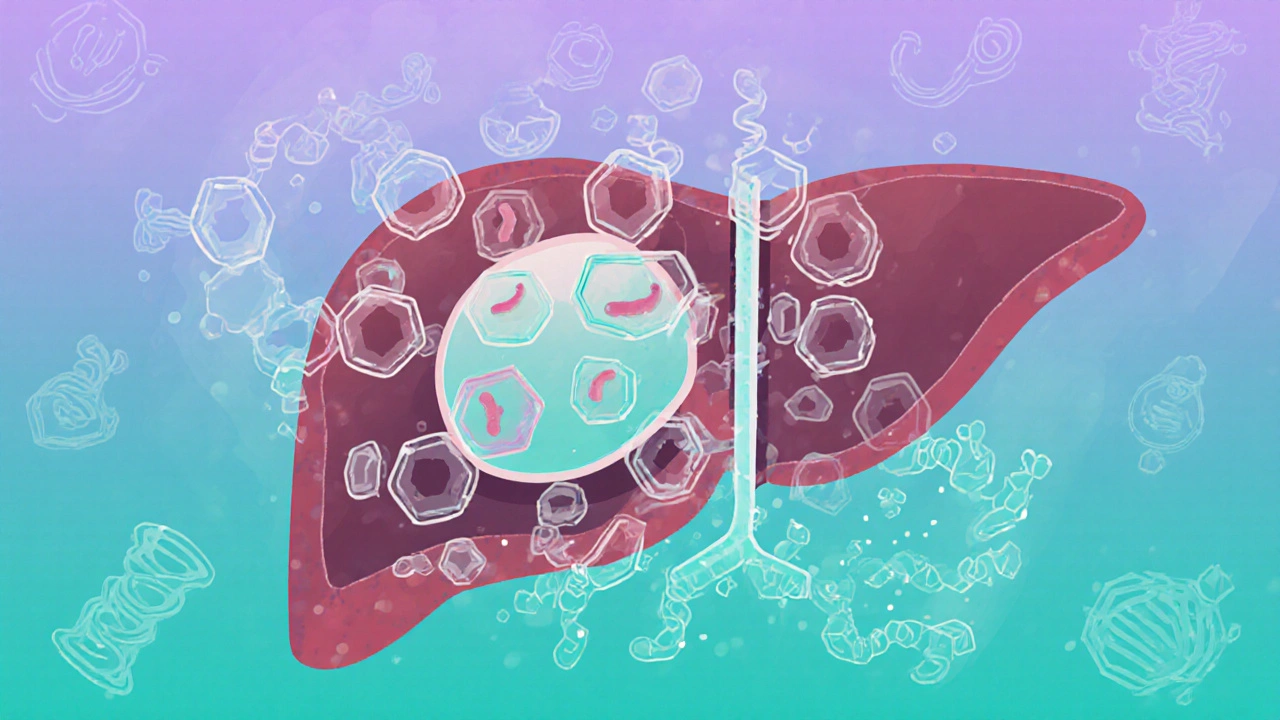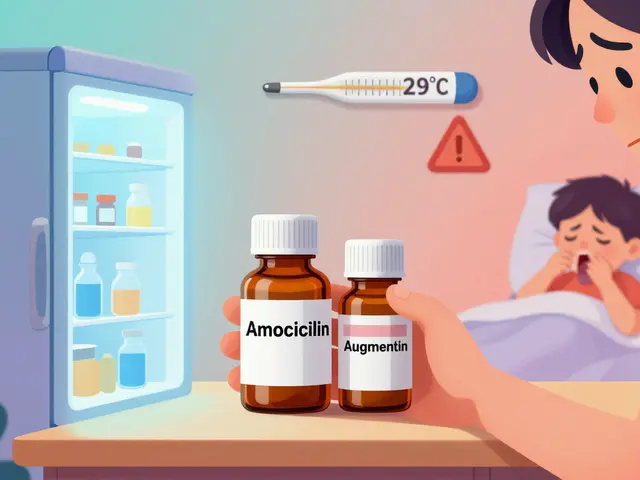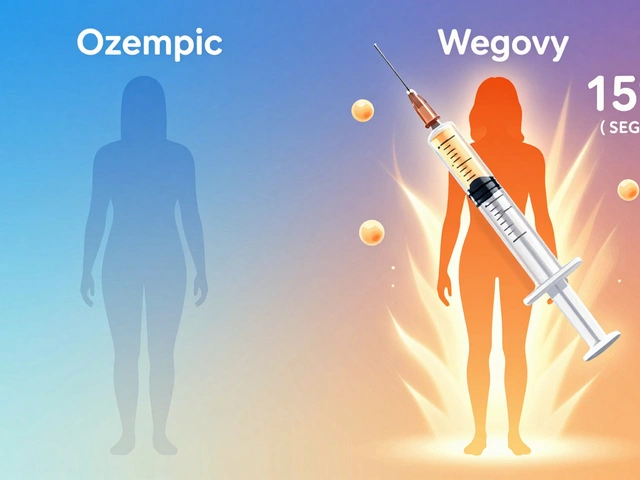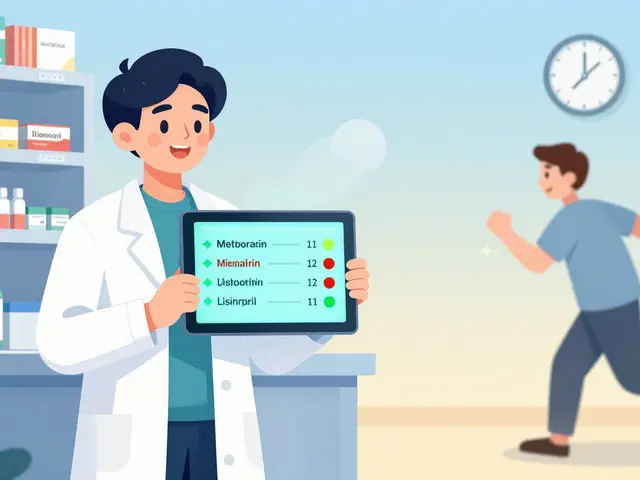Albendazole is a medication used to treat infections caused by parasitic worms. It doesn’t kill every type of parasite, but for the ones it targets, it’s one of the most effective tools doctors have. If you’ve been told you have tapeworms, roundworms, or certain types of liver flukes, albendazole is likely the first drug your doctor will reach for. It’s not a cure-all, but when used correctly, it clears out parasites that can cause serious health problems over time.
What kind of parasites does albendazole treat?
Albendazole works against a narrow but important group of worms. It’s not used for viruses, bacteria, or fungi. Its target is helminths - parasitic worms that live inside the human body. Common infections treated with albendazole include:
- Neurocysticercosis - tapeworm larvae in the brain
- Hydatid disease - tapeworm cysts in the liver, lungs, or other organs
- Ascariasis - roundworm infection in the intestines
- Hookworm infection
- Pinworm infection
- Strongyloidiasis - threadworm infection
- Some forms of whipworm and liver fluke infections
These infections are more common in tropical and subtropical regions, but they can show up anywhere. Travelers, immigrants, and people living in areas with poor sanitation are at higher risk. Albendazole doesn’t prevent these infections - it treats them after they’ve taken hold.
How does albendazole actually kill parasites?
Albendazole doesn’t poison worms like a pesticide. Instead, it attacks their energy supply. Parasitic worms rely on glucose - sugar - for survival. Albendazole blocks their ability to absorb glucose by interfering with a protein called beta-tubulin. Without glucose, the worms can’t make energy. They stop moving, stop reproducing, and eventually die.
This mechanism is why albendazole is so effective against adult worms and their larvae. It doesn’t just paralyze them - it starves them slowly. That’s also why it takes days to work. You won’t see worms in your stool right after taking a pill. The worms die inside your body and break down over time.
Unlike some older dewormers, albendazole is absorbed into the bloodstream. That means it can reach worms hiding in tissues - like the brain or liver - not just those floating in the gut. This makes it valuable for serious infections like neurocysticercosis, where worms are buried deep in organs.
How is albendazole taken?
Albendazole comes in tablet form. The dose and length of treatment depend on the infection. For a simple pinworm infection, you might take one 400 mg tablet and be done. For a tapeworm cyst in the liver, you could take 400 mg twice a day for 28 days or longer.
It’s usually taken with food - especially fatty meals. That’s because albendazole doesn’t absorb well on an empty stomach. A meal with fats helps your body pull more of the drug into your bloodstream. Without food, the drug might not work as well.
Some people take it with a glass of water. Others are told to chew the tablet. Follow your doctor’s instructions. Don’t crush or split tablets unless directed. The dosage isn’t based on weight for adults, but children get lower doses based on their size.
What are the side effects?
Most people tolerate albendazole well. Common side effects are mild and short-lived:
- Stomach pain
- Nausea
- Headache
- Dizziness
- Temporary hair loss
These usually go away within a few days. More serious side effects are rare but possible:
- Liver damage - signs include yellowing skin, dark urine, or severe fatigue
- Low white blood cell count - increases risk of infections
- Severe skin reactions
Doctors usually check liver function before and during treatment if you’re on long-term albendazole. Blood tests help catch problems early. If you’re pregnant, you shouldn’t take albendazole unless absolutely necessary. It can harm a developing fetus.

Who shouldn’t take albendazole?
Albendazole isn’t safe for everyone. You should avoid it if:
- You’re pregnant or trying to get pregnant
- You’ve had a severe allergic reaction to albendazole or similar drugs
- You have liver disease and your liver isn’t working properly
- You’re taking other drugs that affect the liver, like certain antiseizure medicines
People with bone marrow problems should also be cautious. Albendazole can lower your white blood cell count, which makes it harder to fight infections.
It’s also not recommended for children under 1 year old unless under strict medical supervision. For older kids, dosing is adjusted by weight.
How does it compare to other dewormers?
There are other drugs used to treat worm infections. Here’s how albendazole stacks up:
| Drug | Best For | Single Dose? | Reaches Tissues? | Common Side Effects |
|---|---|---|---|---|
| Albendazole | Tapeworm cysts, roundworms, liver flukes | No (usually multiple doses) | Yes | Stomach upset, headache, liver stress |
| Praziquantel | Tapeworms in intestines, schistosomes | Yes | Yes | Dizziness, nausea, fever |
| Mebendazole | Pinworms, hookworms, roundworms | Yes | Minimal | Mild stomach pain |
| Ivermectin | Threadworms, scabies, river blindness | Yes | Yes | Dizziness, rash, swelling |
Albendazole stands out because it works on worms that live outside the gut. Praziquantel is better for intestinal tapeworms. Mebendazole is simpler for common pinworms. Ivermectin works well for skin and nerve parasites. The right choice depends on where the worms are hiding in your body.
Can you get albendazole without a prescription?
In most countries, including the U.S., albendazole is a prescription-only drug. You can’t buy it over the counter at pharmacies or online without a doctor’s order. That’s because misuse can lead to serious side effects, especially if you don’t actually have a worm infection.
Some people try to buy it online from overseas pharmacies. These sites often sell fake or contaminated versions. There’s no guarantee the pill you get has the right dose or even contains albendazole. It’s risky and illegal in many places.
If you think you have a parasitic infection, see a doctor. A stool test, blood test, or imaging scan can confirm it. Self-treating with unverified drugs can delay real treatment and make things worse.

What happens if you miss a dose?
If you’re on a multi-day course and miss one dose, take it as soon as you remember. If it’s almost time for the next dose, skip the missed one. Don’t double up. Taking too much can increase side effects without helping the treatment.
Sticking to the schedule matters. Albendazole works over time. Skipping doses gives parasites a chance to recover. For infections like hydatid disease, missing even one dose can reduce the chance of full recovery.
How long until you feel better?
You might not feel any different right away. The worms die slowly. Symptoms like abdominal pain or fatigue may improve over days or weeks. For brain infections like neurocysticercosis, it can take months to see improvement because the body needs time to clear dead worms and reduce inflammation.
Don’t assume the drug isn’t working just because you don’t see worms in your stool. Most worms break down inside your body. Your doctor will follow up with tests to confirm the infection is gone.
Can you prevent reinfection?
Albendazole treats the infection, but it doesn’t protect you from getting it again. To prevent reinfection:
- Wash your hands thoroughly before eating and after using the bathroom
- Drink clean, treated water
- Avoid raw or undercooked meat, especially pork and beef
- Wash fruits and vegetables with clean water
- Wear shoes in areas where soil might be contaminated with feces
In high-risk areas, public health programs sometimes give albendazole to entire communities. But for individuals, hygiene is the best defense.
Can albendazole be used to treat all types of worms?
No. Albendazole works against many intestinal and tissue-dwelling worms, but not all. It’s ineffective against pinworms in some regions where resistance has developed. It also doesn’t treat protozoan infections like giardia or amoebas. Always confirm the type of parasite before starting treatment.
Is albendazole safe for children?
Yes, but only under medical supervision. Children over 1 year old can take albendazole, but the dose is based on weight. For example, a child weighing 15 kg might get 200 mg once, while a 30 kg child gets 400 mg. Never give adult doses to children.
How long does albendazole stay in your body?
Albendazole is broken down by the liver and mostly cleared from your system within 24 to 48 hours. But its effects on parasites last longer. The drug stops the worms from absorbing glucose, and they die over the next several days even after the drug is gone.
Can you drink alcohol while taking albendazole?
It’s best to avoid alcohol. Both alcohol and albendazole are processed by the liver. Drinking while on this medication increases the risk of liver damage. Even moderate drinking can stress your liver during treatment.
Do you need to repeat the treatment?
Sometimes. For infections like neurocysticercosis or hydatid disease, multiple treatment cycles are common. For pinworms, a second dose two weeks later is often recommended to kill any newly hatched eggs. Your doctor will decide based on the infection type and your response.







Ikenga Uzoamaka
October 29, 2025 AT 10:39